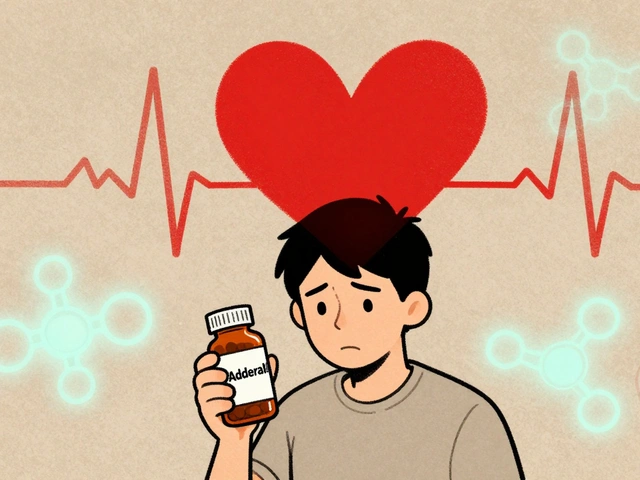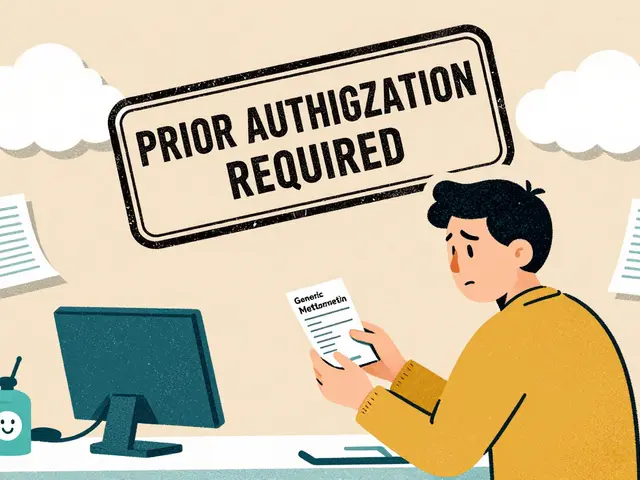Disease Risk: What It Means and How to Manage It
When talking about disease risk, the probability that a person will develop a specific illness based on genetics, behavior, and environment. Also known as health risk, it encompasses many risk factors, variables that increase the chance of disease and prevention, actions taken to lower that chance. Effective screening, medical tests that catch disease early also requires understanding of the underlying risk profile. Think of disease risk as a triangle: genetics provide the base, lifestyle forms the sides, and screening hangs the roof. The more you know about each side, the steadier the whole structure becomes. Below we’ll unpack the most common contributors, how you can shift the balance, and why early detection matters.
Key Contributors: Genetics, Lifestyle, and Environment
First, genetics set the stage. If heart disease runs in your family, your baseline risk is higher, but it’s not a death sentence. Lifestyle choices—diet, exercise, smoking, alcohol—act like levers you can pull to raise or lower that baseline. For instance, regular cardio can cut the relative risk of coronary events by up to 40%, while smoking can double the risk of lung cancer. Environment adds another layer: exposure to pollutants, occupational hazards, or even chronic stress spikes the odds for conditions like asthma or hypertension. These three pillars interact; a person with a genetic predisposition who also smokes and lives in a polluted area faces a compounded risk. Understanding the interplay lets you prioritize interventions: stop smoking first, then add exercise, and finally consider genetic counseling if needed.
Prevention strategies aim to tip the scales toward health. Nutrition rich in antioxidants, fiber, and lean protein supports immune function and reduces inflammation, a known driver of many chronic diseases. Physical activity improves insulin sensitivity, lowers blood pressure, and boosts mental well‑being, all of which directly counteract disease risk. Stress‑management techniques—mindfulness, adequate sleep, social support—lower cortisol levels, protecting heart and brain health. Even small habit changes, like swapping soda for water or taking the stairs, accumulate over months and years. The key is consistency; preventative actions are most effective when they become part of daily routine rather than occasional fixes.
Screening brings the final piece to the puzzle. Blood pressure checks, cholesterol panels, mammograms, colonoscopies, and emerging genetic tests each target specific disease risks. Early detection often means simpler, cheaper treatment and better outcomes. For example, catching colorectal cancer at stage I can raise five‑year survival rates to over 90%, while waiting until stage III drops them below 50%. Regular screenings are especially crucial for high‑risk groups—those with family histories, existing conditions, or lifestyle factors that elevate their odds. By aligning screening frequency with your personal risk profile, you create a feedback loop: data from tests informs prevention tweaks, which further lower risk.
Now that you see how genetics, lifestyle, and screening interlock, you’re ready to dive into the curated articles below. They break down each element—risk factor analysis, practical prevention tips, and step‑by‑step screening guides—so you can turn abstract risk numbers into actionable health moves.

- Oct 7, 2025
- Posted by Cillian Osterfield
Smoking’s Effect on Vascular Health and Disease Risk
Discover how smoking damages arteries, raises risk for heart disease, stroke, and peripheral artery disease, and learn practical steps to protect vascular health.
Categories
- Health and Wellness (72)
- Medications (71)
- Health and Medicine (28)
- Pharmacy Services (12)
- Mental Health (9)
- Health and Career (2)
- Medical Research (2)
- Business and Finance (2)
- Health Information (2)
Latest Posts
©2026 heydoctor.su. All rights reserved





